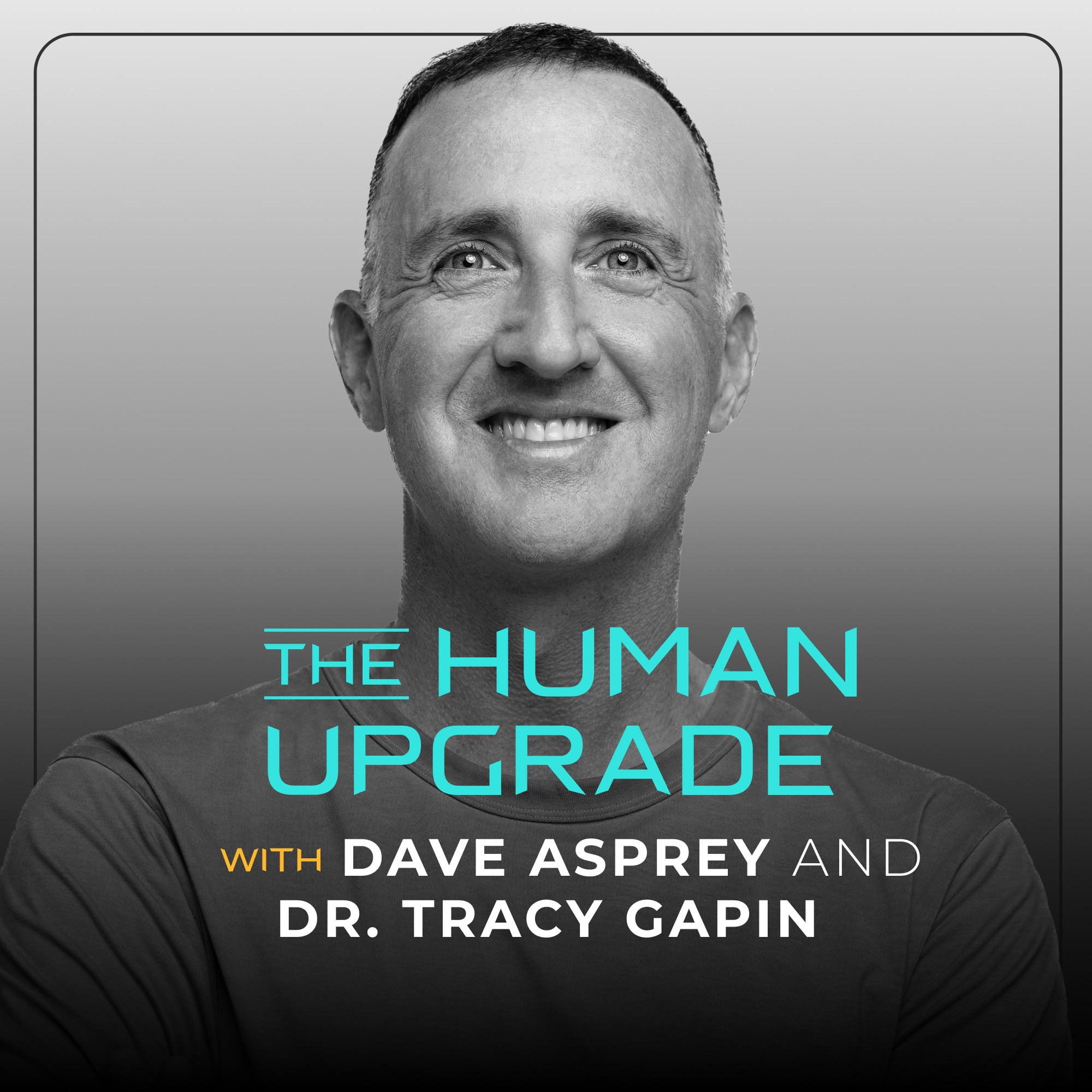
Even one night of sleep deprivation can alter your genes. The epigenetic change of poor sleep can result in reduced immunity, poor memory, lowered cognitive processes, enhanced risk of type 2 diabetes and heart disease, and even higher risk for cancer and early death.
1 in 3 American adults doesn’t get enough sleep on a regular basis. That means nearly 70 to 80 million Americans are being subjected to reduced health and quality of life simply because they aren’t sleeping enough.
But understanding the epigenetics of sleep could help treat sleep disorders and their associated health risks.
How is sleep related to our genes? How do these epigenetic changes impact our health? And what can we do to reverse these genetic changes, sleep more, and stay healthy?
Epigenetics Recap
Let’s quickly recap the basics of epigenetics so we’re on the same page to discuss sleep genes.
Epigenetics looks at how changes in lifestyle and environmental factors can influence genetic expression.
We can’t change our genes. But certain environmental and lifestyle factors—like sleep— can activate or deactivate the expression of those genes.

DNA methylation is the most important and common epigenetic change. Methylation occurs when proteins attach to the methyl groups on the DNA bases. This attachment either “turns on” or “turns off” the expression of those genes. Think of methylation like a light switch that can flip the genetic expression one way or the other. We’ll also discuss histone acetylation below, which also plays a role in epigenetic expression.
Learn more about epigenetics here: What is Epigenetics and Why Do You Care?
The Importance Of Sleep
Sleep is critical for almost every aspect of our health. From learning and memory building to maintaining a healthy weight to reducing risk for chronic diseases, a number of studies have linked proper sleep to overall health and wellness.
The reverse is true as well. Studies have proven a correlation between lack of sleep and health problems, like metabolic disorders, heart disease, and even early death.

But the reason we need sleep for health isn’t fully understood. It could be because a lack of sleep increases cortisol (“stress hormone”) levels, which is linked to health problems. Or it could be that your cells need sleep to “reset” and regenerate. It could also be that sleep gives our body the necessary energy to use during the day.
Epigenetics is making some headway in understanding why we truly need sleep. Epigenetics suggests that sleep impacts DNA methylation, which can activate or deactivate certain cells in the body.
A lack of sleep may increase DNA methylation, which can suddenly activate the expression of risky genes, like cancer-causing tumor growth genes.
“It is becoming clear that epigenetic factors are highly integrated into networks [of clock genes and circadian gene expression],” wrote Qureshi and Mehler.
Epigenetics Control Sleep Patterns
Recent studies have proven that maternal and paternal imprinted genes control REM sleep.
One study looked at two syndromes, Prader-Willi syndrome and Angelman syndrome.
Prader-Willi syndrome comes from maternal additions (and paternal deletions) on chromosome 15. It results in inactive and sleepy children who tend towards the psychotic spectrum disorder.
Angelman syndrome has paternal additions and maternal deletions on chromosome 15. This syndrome results in hyperactive children who tend towards the autism spectrum.
This says something interesting about the link between genes and these syndromes’ symptoms. The difference comes from an opposite pattern of imprinting, which is the expression of the gene of one parental copy over another (Prader-Willi favors the maternal and Angelman favors the paternal).
When the maternal is stronger with Prader-Willi, children are inactive and sleeping. When the paternal gene is stronger with Angelman, children are hyperactive and sleepless.
The gene is the same, but the expression on wakefulness and sleepiness is different.

This same study also found that these genes can even control dreams. When paternal genes were predominantly expressed, the dreamer showed more aggressive impulses. When maternal genes were expressed, the dreamer showed more pro-social behaviors.
The expressed maternal or paternal gene has a direct correlation to energy levels, sleep capacity, and even dreaming.
This proves, at the very least, that our genetic expression has a direct link to our sleep patterns.
Sleep Patterns Control Epigenetics
But the opposite is true too. Genes control our sleep, but sleep also controls how our genes are expressed.
Research has proven that sleep controls the REM cycle. In fact, nearly 15% of our total genes oscillate along the sleep-wake cycles. This means that the genetic expression is dependent upon sleep patterns. A loss of sleep that disrupts our natural circadian rhythm can actually affect 20% of the genes in our brain.
These genes are called “clock” genes. These clock genes are key components of our circadian clock. How they interact with one another is entirely dependent upon genetic expression. The clock genes control when we are awake and when we are asleep, aka our nocturnal and diurnal cycles.
Yes, whether you are a “night owl” or “morning lark” is actually a factor of your genetic expression!
Some of the core clock genes include BMAL1, CRY 1,2 and PER 1,2. You can learn more about clock genes here.

Sleep and DNA methylation
One of the most significant studies looked at the DNA methylation after just one night of sleep deprivation. 15 healthy men stayed in the lab for two nights. They slept during one session and were kept awake the entire night for the other.
They found after just one night of sleep deprivation:
- Complete methylation of CRY1
- Methylation changes in two regions of PER 2
- Reduced genetic expression of BMAL1
That means almost all of the clock genes were instantly changed in just one night. Researchers wrote, “Our current results indicate that changes in our clock genes may be linked to such negative effects caused by sleep loss.”
The study also looked at cortisol and blood glucose levels with sleep loss. They found that one night of sleep deprivation changed the genome of fat and muscle tissue. This demonstrates a direct link to increased risk factors of obesity, type 2 diabetes, and cardiovascular disease.
The researchers weren’t actually surprised that sleep impacted DNA methylation. They were more surprised how abruptly this change occurred. Cedernaes said, “It was interesting that the methylation of these genes could be altered so quickly, and that it could occur for these metabolically important clock genes.”
But what’s the problem? Why do we care about these clock genes?
These clock genes determine not only our patterns of sleep but also other key impacts of health, including cognitive function, metabolic health, and immunity.
Key Epigenetic Changes Dependent Upon Sleep
Sleep improves immunity
There is a direct link between sleep and the immune system. A loss of sleep reduces the ability of the body to fight infection and diseases.
One study found an increase in DNA methylation in children with obstructive sleep apnea (OSA). Increased methylation occurred primarily on the FOXP3 (Forkhead Box P3) gene. This gene is known for regulating the body’s immune response.
Methylation of this gene increased levels of two key proteins:
- High sensitivity C reactive protein: linked to cardiovascular disease and inflammation in blood
- Myeloid-related protein 8/14 complex: has a role in the body’s inflammatory process
Overall, researchers concluded that increased methylation levels increased the systematic inflammatory response. This chronic inflammation reduces the immune system while damaging organs and body functioning over time.
Learn more about the serious adverse health effects of chronic inflammation here.
Sleep enhances memory and cognitive functioning

Memories are stored while we sleep. If we aren’t sleeping, our brain doesn’t have time to “record” these memories.
Like methylation, histone acetylation is another epigenetic mechanism. This occurs when acetyl groups are added to histones (histones help order the structure of DNA). An addition of acetyl relaxes the DNA chromatin structure, which increases the expression of that gene.
While DNA methylation “turns off” or “turns on” a specific gene, histone acetylation enhances the “on” of a gene. If DNA methylation is a light switch, acetylation is the dimmer function.
Studies have proven a link between reverse histone acetylation and brain function. Histone deacetylases (HDACs) are especially implicated in learning and memory.
A lack of sleep can actually cause histone acetylation, and thus impact the brain’s ability to form memories and apply new learnings.
One study looked at rats with three days of sleep deprivation. They found that sleep loss decreased histone acetylation levels and increased HDAC2 expression.
They also found a reduction in BDNF (brain-derived neurotropic factor) promoters. These proteins are critical for the creation of neuron synapses and associated memory formation.
The sleep deprivation reduced BDNF expression, which can interfere with the process of building neurons. Without these neurons, the brain starts to slow down, especially with regards to memory formation.
That’s why a night without sleep can make you so foggy and forgetful.
The researchers then administered an HDAC inhibitor to reverse this process, which was able to restorer spatial memory function.
Sleep minimizes cancer risk
Studies have shown a link between a desynchronized circadian clock and tumor development. Not getting enough sleep can alter genes that are linked to immunity and tumor growth. This leaves your body exposed to cancer progression without the immunity to fight it off.
This likely occurs due to the decrease in melatonin with lack of sleep. Melatonin is the hormone that regulates sleep and wakefulness.
One study found that melatonin can actually reverse tumor growth. In reverse, a lack of melatonin enables tumor growth progression. If we don’t sleep enough, our bodies don’t release the necessary melatonin. Moreover, light at night inhibits the release of melatonin. This melatonin deficiency has been linked to global DNA methylation, which impacts genes that regulate the immune system and inflammation.
In essence, melatonin is necessary to prevent and reduce tumor growth.
Sleep impacts stress (in a cycle)
Sleeping more can actually reduce your stress. Sleep helps lower your cortisol levels and increase your other hormones, like testosterone. A reduction in the stress-hormone cortisol can help your body feel less anxious and stressed.
But the reverse is true too. You need to reduce your stress if you want to get better sleep.

DNA methylation plays an important role in our body’s response to stress. DNA methylation can “turn on” stress genes. Stress causes histone modifications in the hippocampus, which can make the brain too active to get a good night’s sleep.
And many scientists believe that stress causes insomnia.
So DNA methylation might increase stress, which causes insomnia.
Insomnia and disrupted sleep then itself can become a chronic “stressor.” This stressor causes the DNA methylation that then causes insomnia.
It becomes a negative feedback loop of sleeplessness, stress, and unhealthy DNA methylation of genetic expression. This can literally perpetuate and sustain insomnia and associated health concerns indefinitely.
But we can actually break this cycle of epigenetics… by sleeping more.
How To Sleep
Can you “bank” your sleep?
This is always the first question people ask. Is it okay if I don’t sleep during the week and I sleep a lot on the weekend?
Well, no… but maybe.
Scientists are still looking at the impact of sleep accumulation.
However, as we saw with the above study, just one night of sleep deprivation can impact DNA methylation. Chronic sleep loss may have irreversible effects on genetic expression.
But, that doesn’t mean you should start losing sleep over your lost sleep. You want quality sleep every night, but one rough night won’t kill you. It’s generally accepted that it’s better to make up lost time the following day or weekend than to consistently tire yourself out running on no sleep.
So what does a healthy sleep look like?
In all honesty, the jury is still out on the answer to this question. So I’ll give you two key tips to follow that everyone can agree on.

You want to sleep in full REM cycles when possible.
One REM cycle is about 90 minutes long. This means you generally want to wake up in intervals of an hour and a half. For example, you want to set your alarm for 6 hours, 7.5 hours, or 9 hours. Waking up after 8 hours interrupts a REM cycle, which will not only leave you tired and grouchy, but it could also impact DNA methylation and epigenetic expression.
The number of hours you should shoot for each night is still up in the air. I generally recommend 7-9 hours each night depending on your own energy levels. You can sometimes get by with 6 hours depending upon your own body’s needs.
However, with regards to epigenetic expression, the number of hours seems to be less important than when you sleep. You want to follow the natural light-dark cycle of the earth—and of your body. Sleeping during the day may actually impact your chromatin remodeling and cellular metabolism.
Go to sleep when it’s dark. Wake with the sun.
Learn more about sleep and increasing your energy here.
The Bottom Line
Sleep affects our “clock genes.” These genes are linked to key health factors like the immune system, inflammation regulation, cancer progression, stress, and chronic disease.
Even one night of sleep deprivation can impact the epigenetic profile. Sleep alters the expression of our genes. This means that sleep can literally control our behavioral and physiological functions.
Further understanding of the epigenetics of sleep could help treat sleep-wake disorders as well as reduce risks of neuro-degeneration, metabolic disease, cancer, diseases, and aging.
It’s critical to sleep in appropriate circadian rhythms to improve the immune system, boost cognitive function, reduce cancer risk, and more.
Do you love learning about how you can control your genes and health?
Sign up for G1 High Performance Health now to take control of your health this week!
I look forward to seeing you there.






